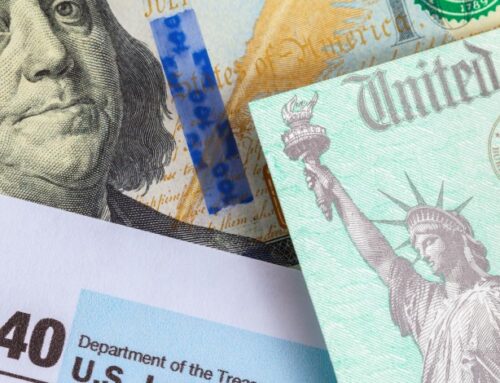In an ideal world, budgeting would be the ultimate solution to saving money. However, life isn’t always that simple. Unexpected expenses, emergencies, or simply the allure of indulgence can throw even the best budget off track.
Here are some practical tips to help you reduce your spending that can be used alongside your long-term budget or if needs arise. By making small adjustments to your habits and expenses, you can pave the way for financial success and unlock a path to greater financial freedom.
Assess Your Expenses
Start by meticulously tracking your expenses for at least a month. Use apps or software that categorize your spending automatically. This will provide a clear picture of where your money is going and help identify areas where you can cut back.
Divide your expenses into categories, such as housing, utilities, groceries, transportation, entertainment, and miscellaneous. This breakdown will allow you to see which areas consume the most significant portion of your spending.
Analyze your spending patterns over time. Are there any recurring expenses that you can eliminate or reduce? Are there any areas where you consistently overspend?
Based on your assessment, set realistic goals for reducing your expenses in specific categories. Start with small, achievable targets and gradually increase them as you become more comfortable with managing your finances.
Prioritize Needs Over Wants
Create a list of essential expenses that are necessary for your basic needs and well-being, such as housing, utilities, groceries, healthcare, and transportation.
When making purchasing decisions, ask yourself whether the item is a necessity or a luxury. Consider whether you can live without it or find a more affordable alternative.
Before making non-essential purchases, give yourself time to think it over. Delaying gratification can help you differentiate between impulse buys and items that genuinely add value to your life.
Allocate a larger portion of your money to needs and allocate any remaining funds to wants. This ensures that you prioritize essential expenses while still allowing yourself some room for discretionary spending.
Reduce Your Monthly Bills
Take the time to review your monthly bills, including utilities, internet, cable, insurance, and subscription services. Look for any unnecessary charges or services that you can eliminate or negotiate for a better rate.
Contact your service providers and inquire about discounts, promotions, or loyalty rewards for which you may be eligible. Be prepared to negotiate for lower rates or switch to a different provider if you find a better deal elsewhere.
Consider bundling services, such as internet, cable, and phone to take advantage of discounted rates. Consolidating your bills can simplify your finances and potentially save you money on monthly expenses.
Take stock of your subscription services, such as streaming platforms, magazines, or gym memberships. Cancel any subscriptions that you no longer use or can live without to free up extra cash in your budget.
Embrace Frugal Living
Adopt a mindset of mindful consumption by questioning whether you truly need an item before making a purchase. Consider the long-term value of the item and whether it aligns with your goals and values.
Save money on groceries and household items by opting for generic or store-brand products instead of name brands. In many cases, the quality is comparable, but the price is lower.
Take advantage of sales, discounts, and coupons to stretch your dollars further. Plan your shopping trips around sales events and compare prices to find the best deals.
Explore DIY projects and repurposing items to save money on household repairs and renovations. Learning basic DIY skills can help you tackle tasks yourself instead of hiring expensive professionals.
Cook at Home
Plan your meals for the week ahead of time to avoid last-minute takeout or dining out. Create a shopping list based on your meal plan to ensure you buy only what you need.
Purchase non-perishable items and pantry staples in bulk to take advantage of lower unit prices. Stock up on items when they’re on sale to save money in the long run.
Experiment with budget-friendly recipes that use inexpensive ingredients and leftovers. Get creative with meal ideas to make the most of what you have on hand and minimize food waste.
Reserve dining out for special occasions and social gatherings rather than making it a regular habit. Enjoying meals at home not only saves money but also allows for healthier eating options.
Reduce Transportation Costs
Share rides with friends, family, or coworkers to split transportation costs and reduce your carbon footprint. Consider using ridesharing apps or joining a carpooling network to find potential carpool partners.
Use public transportation whenever possible to save money on gas, parking, and vehicle maintenance. If feasible, consider biking or walking for short-distance trips to save even more on transportation costs.
If you’re in the market for a new car, prioritize fuel efficiency to save money on gas in the long run. Look for vehicles with high MPG ratings or consider alternative fuel options such as hybrid or electric vehicles.
Keep your vehicle well-maintained to prevent costly repairs and improve fuel efficiency. Compare insurance rates from different providers to ensure you’re getting the best deal on coverage.
Build an Emergency Fund
Determine how much you need to set aside for emergencies based on your monthly expenses and financial obligations. Aim to save at least three to six months’ worth of living expenses to cover unexpected costs.
Set up automatic transfers from your checking account to your savings account to make saving a priority. Treat your emergency fund like a recurring bill that you pay yourself each month.
Resist the temptation to increase your spending as your income grows. Instead, funnel any extra income into your emergency fund to accelerate your savings goals.
Put unexpected windfalls, such as tax refunds or bonuses, towards your emergency fund instead of splurging on unnecessary expenses. Windfalls provide an excellent opportunity to boost your savings without affecting your regular budget.
Get Help With Your Goals at Arizona Central Credit Union
By implementing these practical tips, you can take control of your finances and work toward reducing your spending. Remember, it’s the small changes that add up to significant savings over time. Whether it’s cutting out unnecessary expenses, adopting a frugal lifestyle, or prioritizing needs over wants, every step you take brings you closer to financial success and greater peace of mind.
At Arizona Central Credit Union, we can help you along the way to a brighter financial future. Explore our wide variety of checking and savings account options. If you have any questions about opening an account, contact us online or call (866) 264-6421.




